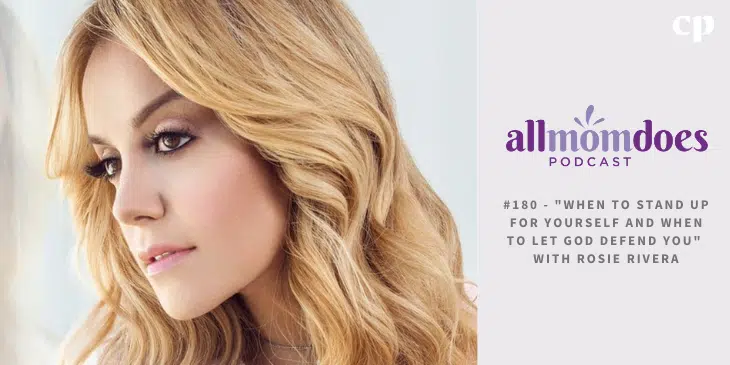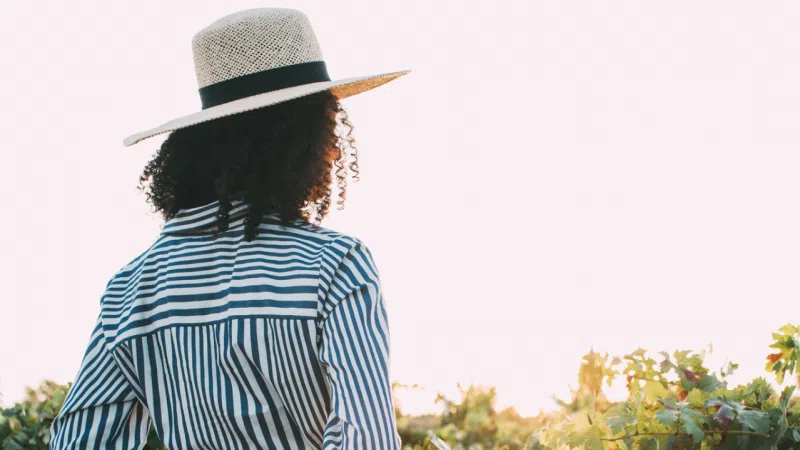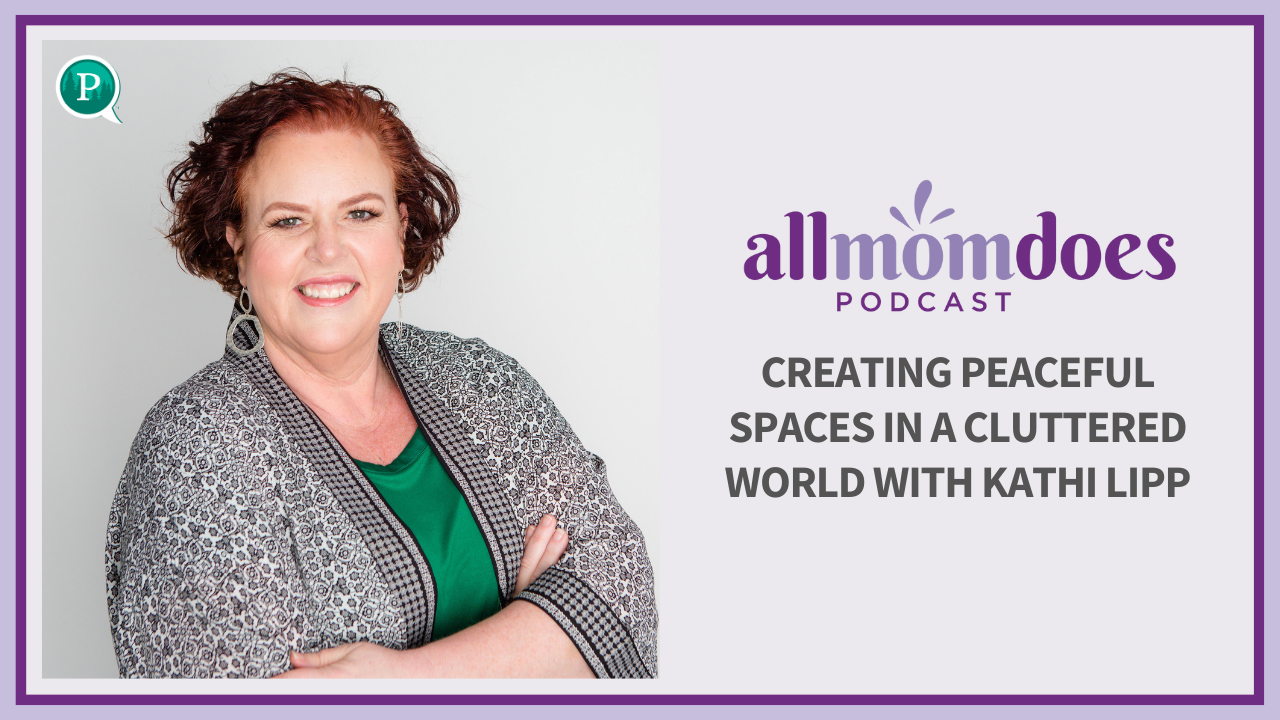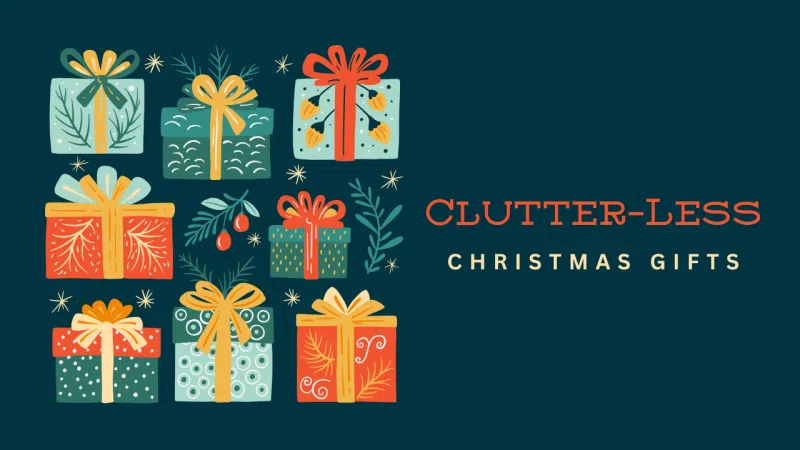How do you know when it’s time to speak up and when it’s time to let God defend you? Rosie Rivera, the sister of music superstar Jenni Rivera, found herself thrown into the spotlight and the public eye when her sister tragically died. She’s navigated everything from being a victim of abuse to the challenges of being a media influencer, learning how to let God lead. Rosie joins Julie to talk about her incredible journey. NOTE: *This episode does have references to sexual abuse.
Interview Links:
- Follow Rosie Online | Facebook | Instagram | Twitter
- Get Rosie’s new book “God Is Your Defender: Learning to Stand After Life Knocks You Down“
Transcription:
Julie Lyles Carr: I’m Julie Lyles Carr, and you’re listening to the allmomdoes podcast part of the Christian parenting podcasts network. Today on the allmomdoes podcast, I get to have a friend of mine. I just love her. We’ve gotten to know each other over the last couple of years, you are going to love her too. Her name is Rosie Rivera.
A lot of you are going to recognize her from her work in television and her books and all kinds of things. I know her as someone with such an incredible heart and such a fantastic relationship with God in the midst of some really complex stories in life. So Rosie, thank you so much for being with me today.
Rosie Rivera: Thank you, Julie. I love to be here with you.
Julie Lyles Carr: Oh, it’s so fun. I know that you are on set between all kinds of things. So thank you for making the time. I know we had to work out some stuff to be able to get you on. So tell our listeners who you are, where people will know you from the television stuff
that’s going on. The kids, the husband, all the things.
Rosie Rivera: Yes. Well, my name is Rosie Rivera and you might know me from, I love Jenny. My sister was a superstar in the regional Mexican world. She was the only woman, regional Mexican artist, not even woman, but just any genre to fill out the staple center. And she was my best friend.
And then she passed away on an airplane on December 9th, 2012. And she leaves me as her trustee. So that’s, that’s kind of the day people met me. I was in my thirties. I was in love with Jesus, newly married and pregnant with my second baby. And then my very private life goes very public very quickly, and I was broken.
I was just completely shattered by my sister’s death. I was afraid that she would die my whole life because when I was being sexually abused by her first husband, he threatened to kill her. That’s how deep our love went, where he knew that killing me wouldn’t really be as scary as killing her. And I was only nine.
So that fear becoming a reality really, really shook me. And then being her trustee in front of so many cameras. It was, it has been a very difficult journey and I’ve just tried to hold on to Christ and the Holy Spirit it’s much as I can. And in working for my sister, cause I, I saw her more as a boss, I also have a husband,
I already had a baby she’s 18 now, and I’ve had two more babies. So a seven-year-old and a four-year-old, and they’ve just seen mom go through everything. I really try not to bring it home. I really try and disconnect, um, as soon as I hit my friend door, but I don’t know if I’ve always succeeded. You know, they they’ve seen me cry, you know, my kids know to bring tissue, but they also know that when mom was in her closet, there’s a candle in some worship music on, they also know it’s praying time, which has given me
hope that even though they’ve seen me cry and go through some difficult things, they also know where my anger is and they’ll step into my closet sometimes and say, Hey mom, can I pray with you? My four year old, I asked him one day, yes, Papa, what do you want to pray for? And he said, the power Rangers and I sent you.
Julie Lyles Carr: I love that. And you know, I mean, Rosie for me, it’s understand because I’ve only, I’ve only known you when you’ve been in the spotlight, but you bring up something that I hadn’t really thought about before, because you know, up until that point, obviously you were used to Jenny’s fame and, and the things that went around that, but
you’d gone to college, you had a career that you were starting, you’d had some different adventures and misadventures of your own up to that point in your life. What was that like to go in a moment, obviously with Jenny’s death being the catalyst, but even in that moment of just going from someone, we see people today who are just living their lives, doing their thing, and a video will go viral or they’ll have a post go viral.
And all of a sudden it’s like they move from going, you know, 20 miles an hour to 120 miles an hour.
Rosie Rivera: Yeah.
Julie Lyles Carr: What is that like to all of a sudden, be catapulted into a spotlight in that kind of a way.
Rosie Rivera: I really feel like I’m living someone else’s dream, someone else would really love this platform. Someone else would love to be in front of a camera and I have accidentally becoming influencer.
And I know a lot of people work very hard to have to have to become influencers. So sometimes I battle with, with feeling ungrateful. I feel guilty because I didn’t want it. And so I have to remind myself that it’s a blessing and I use it as a responsibility of, I need to talk about topics that are real.
I do talk about makeup and plastic surgery or Botox, but I also say my other video is going to be about being a mama, about being a wife about, you know, healing. Um, but it’s been, it’s been super tough because when my sister died, I was going through the grieving process for two things. I grieved, mostly with anger.
I stayed a lot in the anger stage for my sister’s death, but then I realized I was more angry at losing my privacy. I, I have even kind of gone back to post-traumatic stress disorder because when I healed from the sexual abuse, I thought, well, then the PTSD is gone. But with my sister’s death and with things that I’ve had to confront with media very publicly, I’m battling through it again right now.
Like I will have cold sweat dreams. I will wake up and, and bloodshot eyes in the middle of the night. And I don’t even remember this, but my husband, my kids see me wake up crying. And so I know that I’m going through PTSD again. And right now it’s because of the media, it’s tough. But then God also reminds me I’m doing it for a purpose.
This is not, you know, this is not for your harm. This is for peace. This is for your good. And I have to go back and remind myself, um, you know, maybe I am still living someone else’s dream, but I really pray that it’s God’s dream. And that brings me right back to, well, then let’s give it our all in everything that you do, let it be with purpose and with joy, knowing that God is at the head of this, not the media, not Rosie,
God is. And if, and when I remind myself of that, then I’m, I can settle down again and say, let’s face the day.
Julie Lyles Carr: Right? Right. You know, Rosie, I think your voice is so important in this arena. First of all, because you always speak with such transparency and honesty about the experiences that you’ve had. You just
put it out there and explain where you’re at and talk about the incorporation of faith. You’re willing to let it be messy, even though I know you’re a neat freak, but you’re willing to let it be messy. You’re willing to let things kind of just settle as they are and to be honest about that. And you know, one of the things that I think is really fascinating in the journey that you have had
in that space is I find that a lot of times, for within the, within the faith space, we don’t have a lot of Mexican, American, Hispanic American voices talking to us about that experience. And so when I looked at your platform and how it’s grown, that’s one of the things that I definitely feel like I can see God doing is giving you voice where sometimes that voice hasn’t been before.
What are you finding that’s interesting as you travel, as you were saying at the top of the interview, you know, Hey, I may, you know, go into my Spanish for a little bit, cause you’re filming a bunch of stuff today, but then I’ll be back to the English. What are you finding within that cultural dynamic, as you continue to speak forth in your faith and the different experiences that you’ve had as people are encountering you.
Rosie Rivera: Um, I’m privileged to be an influential voice, um, a Latina voice on, on both worlds. And I’m really still learning my identity. I’m 39 years old and still learning what’s my Mexican side? What’s my American side? I love both flags. I love my country. And knowing that there are other women that feel like that too, that will, what do I teach my child?
Should I start with Spanish? Should I start with English? And, and that. A lot of my English public embraces or wants to embrace our culture. So I feel very welcomed and very loved. And sometimes it’s like, Hey, I’m lucky here. I got, I get to kind of teach people what it is to be a Mexican American woman, uh, that’s a believer.
And so it’s a privilege and I, I go back and forth very easily and I just thank God that he’s doing something and that he’s chosen me to do it.
Julie Lyles Carr: Right. Right. You know, you have an interesting experience in your mothering because obviously you’ve been juggling this more public persona and the same time you have this blended family going on. You’ve got kids who are older,
you’ve got kids who are younger, you’re navigating, you know, as you’ve said before, everything from college to teaching colors at the same time. So what are some things that you’ve learned in that navigation, because, you know, we have those listeners who maybe they have a stepchild or two, or they’re incorporating the kids they’ve had into a new marriage, or they’ve got kids who have a really big gap between ages.
What are some of the most notable things that you’ve learned in this season of mother?
Rosie Rivera: Um, getting along with my ex’s wife, I forgave her without even telling her. And without her asking for forgiveness, I don’t even know if I had to really, you know, um, see, was it, it wasn’t her fault? Um, I think I learned a lot about my ego
and really loving your child laying down your life for your friend, who obviously is my child. I laid down my life in the sense of I’m going to let this go. I’m going to let this pride go. I am a no competition with, uh, my, my, my ex’s new wife. And if I really love my child and she really comes first, then I’m going to bite my tongue.
And not only that, but I’m genuinely going to see her as, as a part of this family. We have a family, she is my family now. And, uh, I remember the day that I decided to forgive her and I understand that forgiving is hard and that am I really gonna get anything out of it? What’s in it for me? You know, I’m very honest.
You, when you talk to God, you have to be God, what does this in for me? If I forgive her and like, yay, she has a great family, now, what will I get? And you know what? It has been such a blessing because me forgiving her, me really letting it go, her forgiving me and her letting it go blessed our kid so much.
Yeah. Our daughter is it has a peaceful life. The best moments, you know, when you ask her, well, um, you know, what are the best moments of your life? She says when, when my whole family was together. When we were under one roof and that’s that’s dad and bonus mom, that’s mom and Abel, and we were all together just having a slice of pizza and there was peace.
And so I think, I know that it’s hard to forgive. I know that you may feel like, well, why does she get the husband that I wanted? Why does she get the better version of the man that I loved? I helped him become a better version and now he’s having a family with someone else. I get all those feelings, but being able to really see your child happy because she has a family, um, is so rewarding and it’s so worth it.
So if you’re thinking, is it worth it to forgive someone? I have experienced, absolutely. My child’s health, my child’s emotional and mental health is so much more important than some little spat that I could have had with her bonus mom.
Julie Lyles Carr: Right. I love that in the. The intentionality that you’ve brought to building family in a different way.
You know, I think a lot of times, because we hold the ideal that marriages will stay together. And of course we want that. And, and of course that can relieve a lot of pain on both sides and you and I both know the statistics in terms of our world today don’t always bear that out and there are circumstances where that marriage can’t stay intact, but the willingness to be intentional on the other side to rebuild something that really works and to keep the kids in mind, Such a phenomenal thing.
And I know part of this comes out of a heartbeat that you’ve had, you know, you’ve got that amazing mama bear fight for your people thing. You’re such a devoted sister and wife and mom and daughter, and yet you’ve really leaned into letting God be your defender. And that’s one of the things that is really interesting in our culture today, because I do want women to have a voice Rosie.
I want women to be able to speak up when stuff’s going on. You’ve also been the Vic, the victim of sexual abuse, and you know what that’s like to stay quiet for a long time and to not feel you have a voice. So how do we navigate these waters of being both vocal about what we need being honest about what’s going on
and yet at the same time, letting God be the one who defends us, who carries our causes, like, what is that line? How do we achieve that?
Rosie Rivera: Right. I was thinking the other day, there are giants that we slay, like Goliath, like he’s going down and he’s my giant that God has prepared me to take down, but then there are other giants like Saul, where pardon him,
let him be. I mean, chance to say, I’m going to tell them the truth about you. And God says, no, you’re not. You’re going to be quiet because this is to build your character. And, and so it’s, it’s really being in tune with God to say, when? When do I speak up? Because the people that have read the book, a lot of them connect with the trap of avoidance.
You know, because we’re believers because we’re moms, because we want to set an example for our kids, we want to be pious and say, I shouldn’t say anything. I’m just going to take it. I’m going to, I’m going to be like a good loser or, and, and sometimes we use that as an excuse to not say anything at all.
Right. And that’s not necessarily God being our defender. It it’s knowing and staying close to him to know when to act and when not to act. And that has been a journey that I’m still on. That sometimes day by day, I have to stop myself and ask, okay, God, do you want me to say something? Or if you want me to say something, God, then make the situation happen.
And then he does see this happening. So you can speak up right now, speak, and it’s literally something I’m still going through right now and still learning we’re all on the journey together. And our readers will be able to see, it’s not like, Hey, I’ve conquered it. It’s let’s do this together. Yeah. Let me know what you know, and I’ll share with you so that we can grow together.
But really, really it’s been a journey of getting to know God as my defender and really trusting him. And I get to have peace because, when I’ve acted impulsively, I’ve burned bridges. I’ve burned down so many forests that I don’t want to do that anymore. I want to let relationships have more of a chance.
And so there are times that I’m still learning to speak up and when to speak up. And other times when the holy spirit is still saying, not yet, don’t say anything. I’m going to say it. Right. So it’s really being in tune, um, to the when. I love how God told Abraham, go sacrifice your son. And that was a yes and instant
he said no. And that can make you question. Wait a minute. God said, yes. Why is he saying no now? To me, I catch that as an, I want to be that in tune with the voice of God. Yes, and I’m on my way and then I take one or two steps. Those are the only ones God wanted me to take. Now it’s time to stop and let God do the rest of the journey.
So, um, I think it’s an adventure we’re on, a walk we’re on until we’re ready to be with him. And, and when God does speak up and when God does defend me, it’s so much better than what Rosie would have tried to do.
Julie Lyles Carr: Yeah. Yeah. And I love that distinction that you make. I think it’s really powerful about we can have in the same experience a yes, and go,
and a now stop. You know, and that’s really powerful to think about because often we want these very clear directions that we think are going to carry us all the way across the line. But it makes me think about the verse where, you know, the Bible says that God’s word is a lamp to our feet and that means that’s just a step in the dark, you know, that’s just the next step.
We’ll enough light for the next step. We’ve heard that phrase before, through the years, but that’s what it makes me think of that it’s obedience in the, this next step. It’s not necessarily that that’s the course of action for every step after that. Do you think, as someone who’s been through some really tough stuff, you know, having survived sexual abuse, having to had go through the trial for all of that, all of those things, do you think for people who’ve been through some really traumatic experiences like that who may be dealing with PTSD from those experiences that there may be a tendency to be more extreme one side or the other when it comes to this topic?
Like either the trap of avoidance, like not ever say anything because it’s just too difficult and painful or that woman pushed her cart in front of me in front of the grocery store I’m taking her out. Like, you know, do you think that’s a, that’s potentially a danger for people who’ve been through some pretty extreme trauma?
Rosie Rivera: I think so. I, at least from my experience and from those around me, I think it is very hard to pinpoint how anyone will react to traumatic events. But just from what I have experienced with those around me, we do tend to go to the extremes. In a sexual way it can be, I never, ever, ever want to have sex or being very promiscuous.
And I’ve done both. I will catch myself saying I have been on the opposite sides of the spectrum on eating, on my emotions on speaking. I’m not going to say a word. I swear I’ll never, ever, ever speak. And then speaking about it to everybody. And, and now I’m learning about balance just in between, um, not too much of anything.
And, and so I do believe that we will tend to go to that extreme in our desperation of trying to find relief. In, in trying to find peace. In trying to find something to numb the pain, we will go to the extremes, eating, drinking, um, relationships. I’ve been at at both extremes and I think that if we’re not aware, We, we can fall into that
also. It can get very dangerous and that’s when we get into toxicity, right. You know how much we’re eating, how much we’re allowing someone to mistreat us or us becoming toxic. Talk about it, but sometimes we are the toxic ones. We have to step away from people, um, until we heal and then we’re able to come back to that relationship.
Julie Lyles Carr: Right. And be able to go forward in a way that’s a lot more healthy. You know, it wasn’t things that I have always found so compelling about you is the depth of your relationship with God, even in the midst of some really difficult circumstances. Do you feel like that’s something that from a really young age, you experienced him so deeply?
I mean, I know in your life how you listen for his guidance, you look for his direction, you lean so heavily and I watch it so inspired. Do you feel like that’s something that from a very young age you saw modeled? Is it something that grew over time, and how do you nurture your relationship with God? You know, a lot of times we get answers like, well, I always have my quiet time or always pray, but, you know, is there something that you feel like has really
continue to grow and keep that relationship as intact, even as you’ve navigated some super crazy waters at times?
Rosie Rivera: I have allowed myself to accept the different journeys. So one, what has really helped me is my mother’s consistency. My mother received Christ when I was nine and she went through everything and
she just never wanted to leave God. And he hasn’t left her. So knowing that it’s not behavioral, it’s not like, oh, mama behaved well. No, mama is very real with me, but she, she always anchors back to, well, Jesus is going to help me through it and then watching him show up. So that consistency has allowed me
to know that he is going to be constant in my life. There’s one constant thing in my life. I can always go back to this, but I have allowed myself to really journey differently with God in each season, because before it used to be meditating. And then it was, I’m just going to worship through it. And then it was, I’m just going to read the Bible. Now it’s, we’re going to work out together.
Hey, Jesus. I really need to work out. Can you work out with me? Um, in the years where my children were small and I had no time to read the Bible, I had to find a different way. And I’m so glad that I can’t put Jesus in a box and say, Hey, this really worked when I was nine. I would read a lot when I was nine, I would
attend church every single Sunday when I was, you know, in my twenties or thirties. But now I have, I have three kids and they’re always busy. Lord, what if I can’t make it to church and, and, and allowing him to teach me a new way of connecting with him has been such a challenge, but also a pleasure to say, Hey, I’m just going to sit here today.
I’m not going to journal. I don’t have a prayer right now. I have no words. Jesus. I just have tears. And can we just sit together? And I’m so glad that I have been able to experience Christ in a new way, depending on the season. And the way hasn’t been consistent, but Christ has been consistent. And I’ve, I, I really love knowing that because it’s really helped me.
It’s like the guilt of, I don’t have the same time. I don’t have two hours anymore. And now at 9:00 PM, that’s my husband’s time. So, you know, Jesus, what do I do? And he, I just asked him every morning, can you show up? Just show up where I am every single day. And he does. And like I said, sometimes he’s shown up at the day, gym and there I have crying on the treadmill.
Jesus cause you met up with me. Um, and, and there’s no guilt anymore about having to do it a certain way, or the way I used to have my relationship with Christ.
Julie Lyles Carr: Right. I love that because I do think that the devices and the tools that we have to help keep those relationships. With, to keep that relationship with him strong are powerful, but Rosie I’ve had all kinds of copycat issues from time to time,
because if I had a friend that I thought had an amazing relationship with God I’d want to know everything she did. And oh, she gets a beautiful basket and she puts this stuff in it and she does this and she lights this specific candle and she’s got this specific highlighter. All of that has led to this real close relationship with God.
And here we go, Julie, with a recipe card about how to emulate that. Now is there wisdom perhaps in the way that she was approaching that relationship? Of course, but I so often myself have, have missed it. I love that. You’re saying to just sit in his presence and to not make it another task. To not make it dependent on certain accoutrements and accessories to make it happen.
I think that’s really, really a beautiful thing. Well, Rosie,
Rosie Rivera: I know, I’m sorry. It’s also out me. To allow my husband to have his own journey connection. Cause I used to think, well, why aren’t you reading your Bible in front of me everyday? I have to see you read. Are you reading it? You know, on, on, on your phone or, and, and the fact that I have come to realize that it’s going to change for me, whether it’s doing a devotional or reading three chapters, and then the next year, it’s the Bible in a year.
That means that I can really lay back on my husband. And because I have laid back and I just pray for him, lord connected him every day. I don’t have to see it. He surely doesn’t have to do it my way. And God told me that he said, let me connect with my son the way we want. Yeah. Need to let my kids connect with him in the way God wants.
And, and that’s really given them freedom of, of me praying for them always. And, and, and I create an environment for a connection with God, but I don’t dictate it anymore. And I think they rest a little bit more now.
Julie Lyles Carr: I love that. Well, Rosie, you’ve been so generous with your time. I know that you are between television sets and you are running and going and doing all the things, but it’s so awesome to be able to connect with you today.
We’re going to have to have you on again. We have so many more things we can talk about.
Rosie Rivera: All the time you’re in LA we’ll go get that coffee.
Julie Lyles Carr: That’s right. We’re going to do it. I’ll talk to you soon. Thanks so much for being with us. You’ll find more from this episode on the show notes, be sure and check them out at allmomdoes.com,
and wanted to ask you a big favor, be sure and go to wherever you are listening to this podcast and give us a five-star rating and review. It really helps us get the word out about the podcast. Can’t wait to see you next time on the allmomdoes podcast.

















